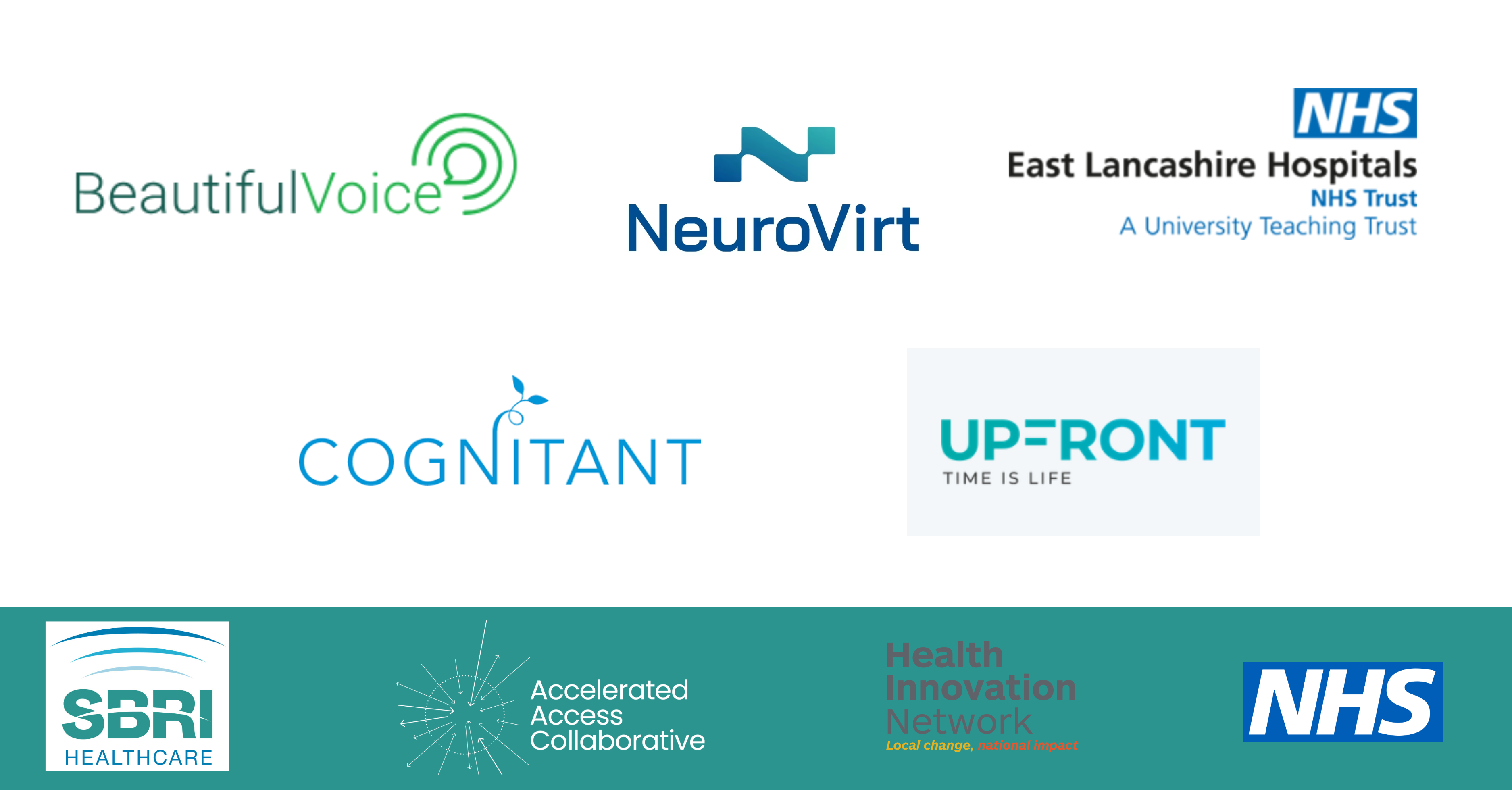
SBRI Healthcare, an Accelerated Access Collaborative (AAC) initiative, in partnership with the Health Innovation Network, has awarded £2.5 million for the development of five innovations that support stroke patients.
Funded by the AAC, SBRI Healthcare 'Competition 26, Phase 3, Stroke’, was launched in July 2024 as a Phase 3 funding competition. Phase 3 competitions aim to facilitate the collection of evidence in real-world settings to accelerate the adoption and spread of late-stage innovations into healthcare settings.
The competition was open to single companies and organisations from the private, public, and third sectors, including large corporates, small and medium enterprises, charities, universities and NHS providers. In consultation with the James Lind Alliance Stroke Priority Setting Partnership for Stroke Research, clinicians and stakeholders, innovations in Stroke are sought that focus on:
-
Early diagnosis
-
Rehabilitation
-
Life after stroke.
Projects could apply for a maximum of £500,000 for up to 12 months.
David Hargroves, National Clinical Director for Stroke Medicine, NHS England, said:
‘‘These innovations in stroke care offer the potential to drastically improve the pre-hospital detection, acute imaging, rehabilitation and collaborative information sharing for patients suffering with a stroke in the NHS; we await the findings from these important projects with interest.”
Verena Stocker, Interim Director of Innovation, Research, Life Sciences and Strategy, NHS England and Chief Executive Officer, Accelerated Access Collaborative, said:
“The SBRI Healthcare awards help the NHS to develop new technologies and solutions to address some of the biggest healthcare challenges facing society. We have selected these innovations because they have the potential to make a big difference to stroke patients. By supporting the most promising innovations, the NHS will continue to evolve, helping to meet more patients’ needs and encouraging more innovators to come forward with innovative ideas that benefit all.”
The SBRI Healthcare 'Competition 26 – Stroke, Phase 3' awarded projects are:
Upfront Diagnostics, T/A UPFRONT TIME IS LIFE – awarded £500,000 - Real-world evidence for NHS adoption of a point-of-care blood-test for pre-hospital identification of stroke patients suitable for thrombectomy treatment (LVOne-Pathway)
LVOne is a novel rapid blood test for diagnosing severe stroke patients who need rapid treatment. The test is designed to be used in ambulance, so that patients can be identified early and fast-tracked to treatment. The project will investigate barriers/facilitators of LVOne's implementation in the real-world.
NeuroVirt Limited – awarded £500,000 - NeuroVirt - The implementation effect of Immersive Virtual Reality for post-stroke rehabilitation within three NHS care settings
NeuroVirt is a revolutionary XR solution transforming rehabilitation with engaging therapy, precise compensation control, and accurate remote monitoring—empowering clinicians to deliver smarter, data-driven care. The project will implement NeuroVirt within the NHS to provide high dose and intensity rehabilitation without the need for additional clinical resources.
Cognitant Group Ltd - awarded £495,033 - Evaluating ‘My Stroke Companion’: Enhancing Stroke Survivors’ Knowledge, Promoting Healthy Living, and Reducing Secondary Stroke Risks
My Stroke Companion is a digital support platform designed by stroke survivors, families and healthcare professionals, providing a customised information package for when patients leave hospital that is personal to them about their type of stroke, treatment plans, risk factors and local support services, to support prevention of secondary stroke.
East Lancashire Hospitals NHS Trust – awarded £494,195 - Scaling and Evaluating NeuroRehabilitation OnLine (NROL) Model: Enhancing Access to Intensive Digital Stroke Rehabilitation Across NHS Regions for Better Outcomes
NROL provides virtual therapy groups to stroke patients. The project will adapt a digital healthcare platform to support the delivery of the NROL programme via ELAROS, whilst also enhancing the therapy offer, spreading to a new region and proving a roadmap for ongoing spread and scale of the model.
Beautiful Voice Limited – awarded £492,187 - Real-world evaluation of Beautiful Voice, a smart speech and language therapy
Beautiful Voice offers a digital health platform that uses AI and gamification to enable healthcare professionals to deliver a more efficient and measurable speech and language service while improving patient outcomes. The project aims to evaluate the technology in three ICBs and collect necessary evidence for NHS adoption and rollout.
__
About SBRI Healthcare
SBRI (Small Business Research Initiative) Healthcare provides funding and support to innovators to develop solutions that tackle existing unmet needs faced by the NHS. The programme aims to improve patient care, increase efficiency in the NHS, and support the UK economy. The programme provides funding and support to early-stage projects enabling testing for business feasibility and technology development, as well as to more mature products to support real world implementation studies. SBRI Healthcare is funded by the Accelerated Access Collaborative and delivered in partnership with the Health Innovation Network.
About the Accelerated Access Collaborative
The Accelerated Access Collaborative is a unique partnership between patient groups, government bodies, industry and the NHS. It delivers ambitious programmes to ensure the NHS is in the best place to improve patient outcomes and reduce health inequalities through research and innovation. It does this by identifying the best new medicines, medical devices, diagnostics and digital products. It supports providers and integrated care systems to make them available to patients as quickly as possible.
About the Health Innovation Network
There are 15 health innovation networks across England, established by NHS England in 2013 to spread innovation at pace and scale – improving health and generating economic growth. Each health innovation network works across a distinct geography serving a different population in each region. As the only bodies that connect NHS and academic organisations, local authorities, the third sector and industry, health innovation networks are catalysts that create the right conditions to facilitate change across whole health and social care economies, with a clear focus on improving outcomes for patients.
